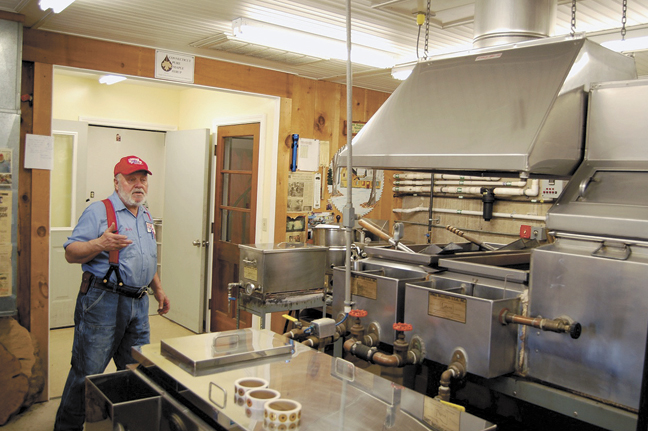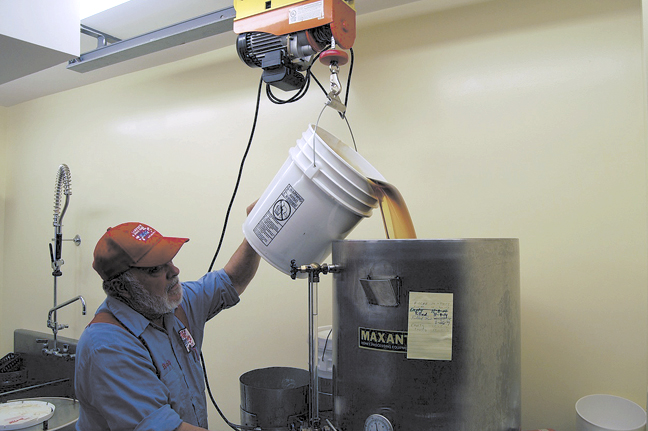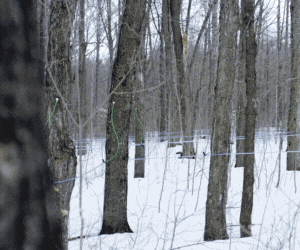Food Safety & Gov't Regulations
Sugarmakers deal with compliance conundrum
Food safety regulations put some on 'very thin ice'
By PAUL POST | NOV. 11, 2017
BURLINGTON, Ct. — A prominent Connecticut maple producer has spent considerable time and money bringing his sugarhouse into compliance with new Food Safety Modernization Act standards.
The federal bill was passed in 2011 and took effect in November 2015. The largest operations had to comply by last November, while mid- and small-sized businesses have until this fall or November 2018, respectively.
While understanding the new law’s purpose, Robert Lamothe of Burlington, Ct., is concerned that its somewhat daunting, complicated regulations will intimidate and discourage small and beginning producers from getting established.
“We’ve been in business here for 46 years,” he said. “All of a sudden producers are very, very careful in what they do. It’s very thin ice for anybody to walk on.”
Lamothe’s Sugar House, although relatively small compared to New England’s biggest operations, is the largest maple producer in Connecticut, with 5,600 taps. Lamothe is an avid ambassador for the industry and spent several days promoting maple products in the Connecticut building during the recent Eastern States Exposition, the “Big E,” near Springfield, Mass.
However, his concern isn’t just for maple producers, but other types of agriculture as well, which are also affected by the new laws. “The greatest growth sector in farming right now is the Northeast,” Lamothe said.
Many types of new and beginning farms are taking root in the region, from organic vegetable growers to people who raise sheep and beef cattle. Lamothe said a friend who makes cheese from goat’s milk is concerned about the new law’s impact on her business.
“We have to have safe food,” he said. “But small food manufacturers are going to be under the microscope. I don’t want to see these people be intimidated.”
Lamothe’s newest sugar house was built in 1988. Recently, with a $5,000 state Department of Agriculture “farm transition” grant, he’s made significant kitchen upgrades. “It was a matching grant so we used $5,000 of our own as well,” he said.
His grant was part of a $500,000 program funded by the state of Connecticut.
Specifically, much of the money Lamothe spent was used to retrofit his large cook stove and refrigerator with casters that roll, instead of feet. This way, the large heavy pieces can be moved and cleaned behind more easily, creating a more sanitary work environment.
“We can put them in the evaporator room now, get everything out of the kitchen, to clean better,” Lamothe said. His kitchen also has new flooring and molding, plus a new hand washing sink, and hose backflow prevention devices have been installed
Other sugarhouse improvements have been made, too. Cracks in the ceiling, from weather-related expansion and contraction, have been repaired and painted along with walls. Three new doors —costing $1,000 apiece — that connect rooms have been installed.
Maple production by its very nature is subject to some biological risk. For example, yeasts and molds can form if syrup is finished or packaged incorrectly, according to some regulatory officials.
“But in 46 years of making maple syrup I have never had mold on our syrup or our candy,” Lamothe said.
With safe, modern practices and paying attention to detail there shouldn’t be any problem, he said.
“We have spent almost a year to bring our maple kitchen up to the FSMA standards,” Lamothe said. “It takes a lot of hard work and money to get the job done. We’ve done everything that is feasible. We’re just trying to be more conscious about the food we handle. I want to work with health inspectors, but it has to make sense.”
“I don’t think anybody’s going to be fully compliant right off the bat,” he said. “It’s a very big nut to crack.”

































